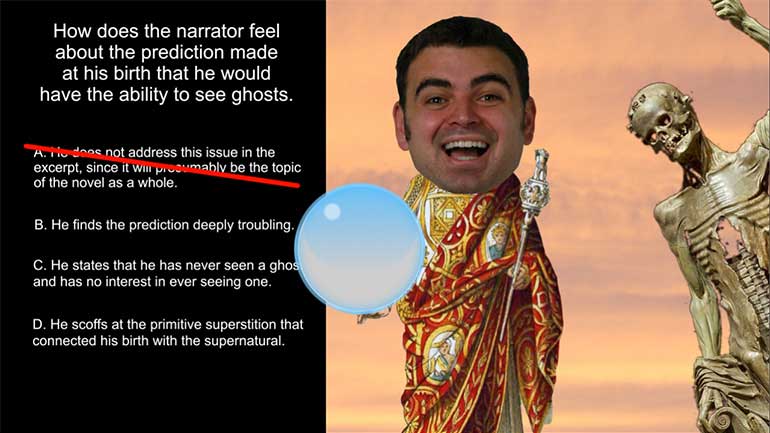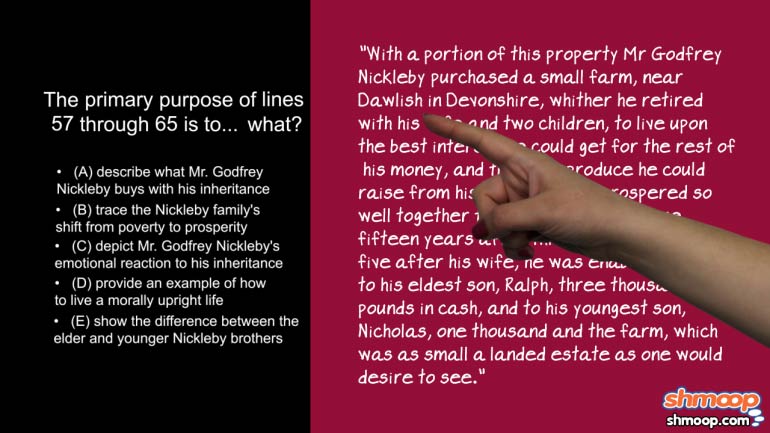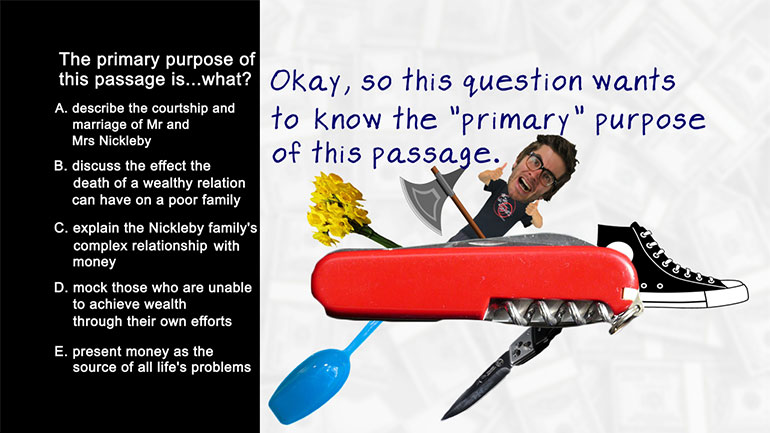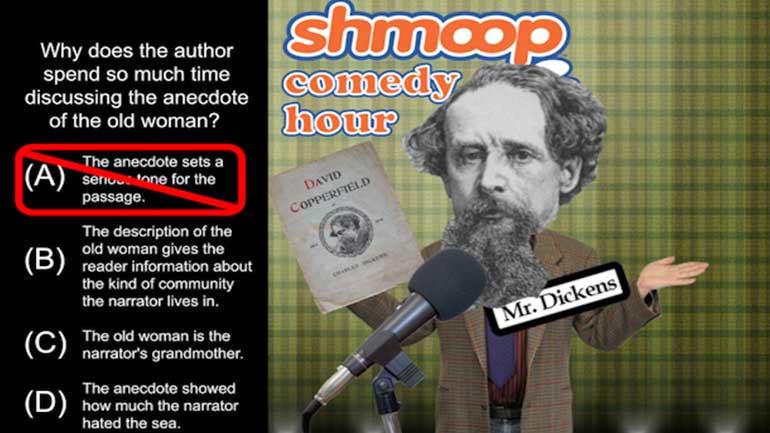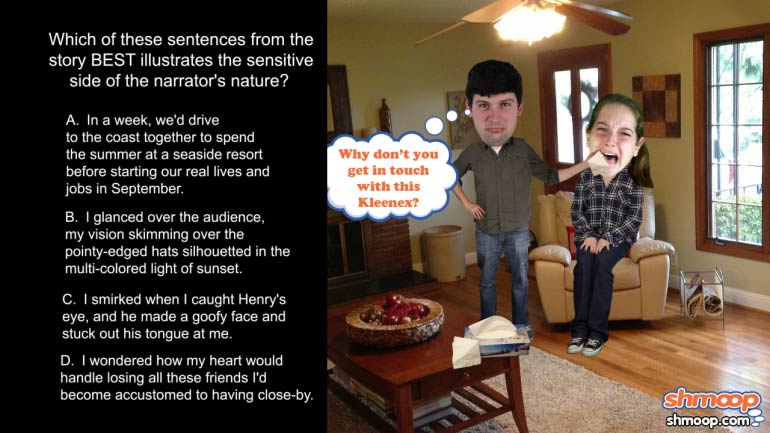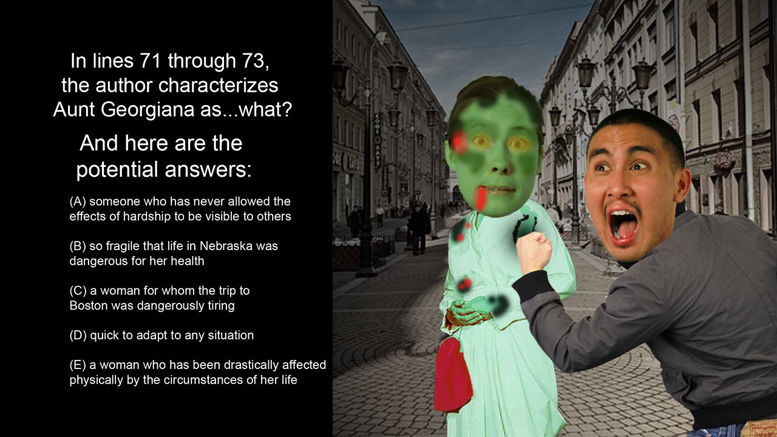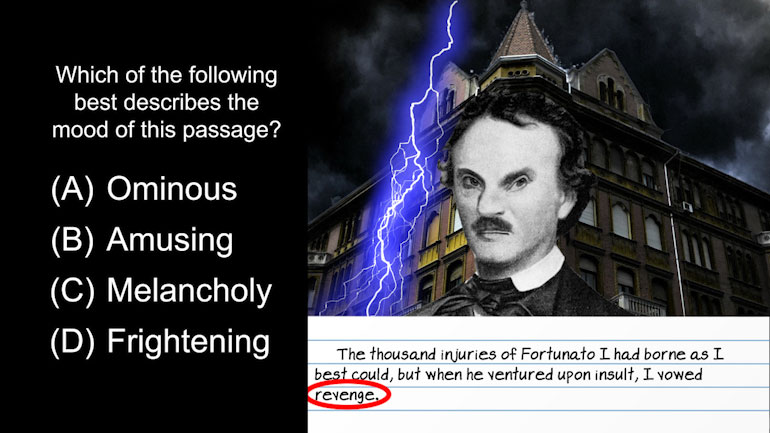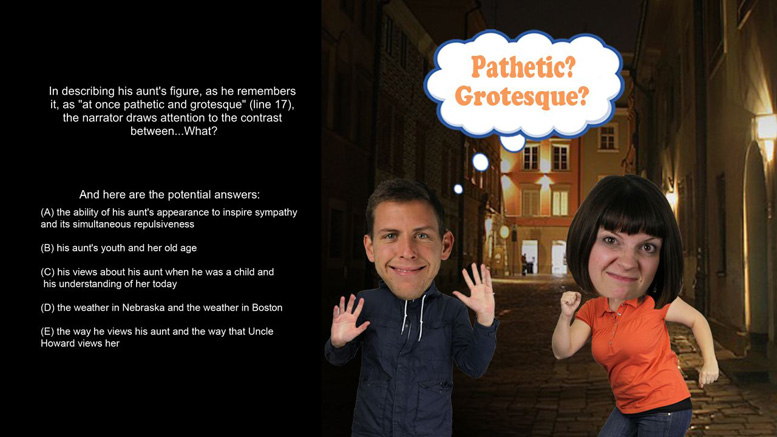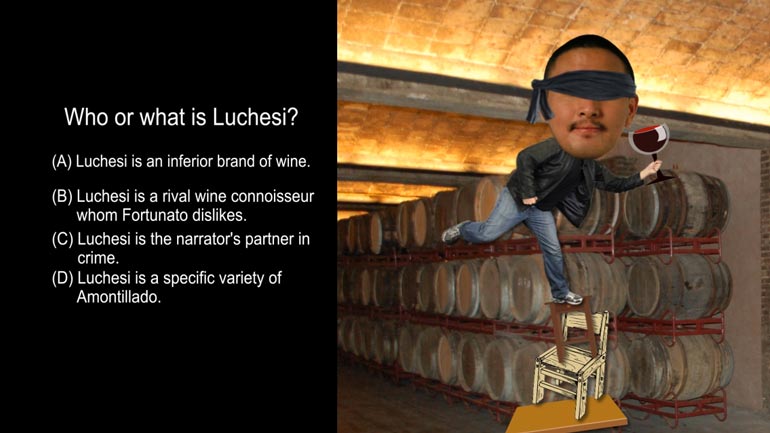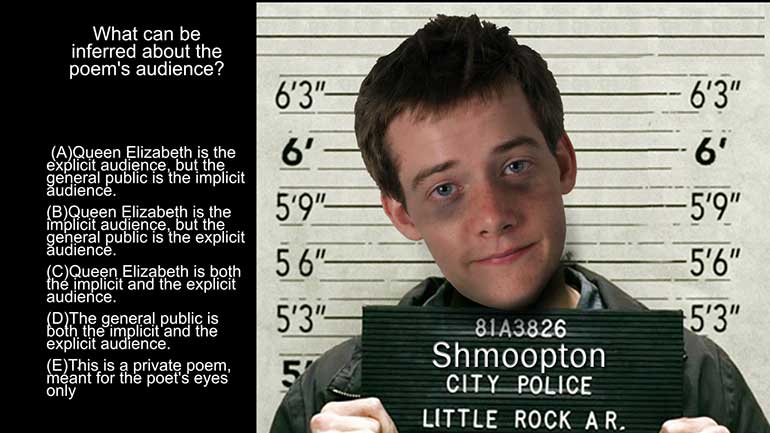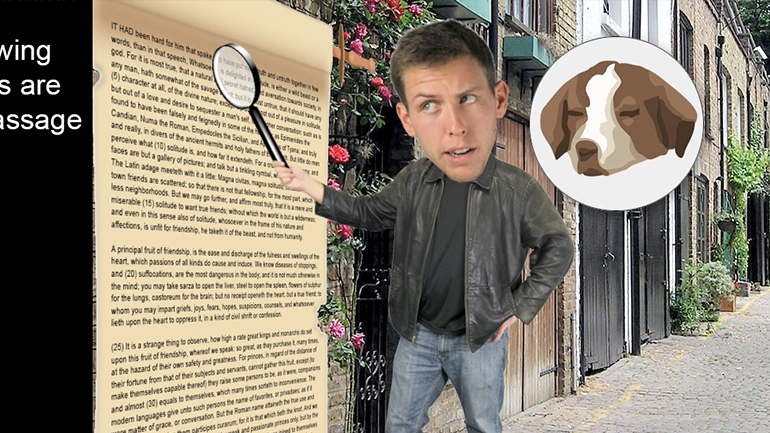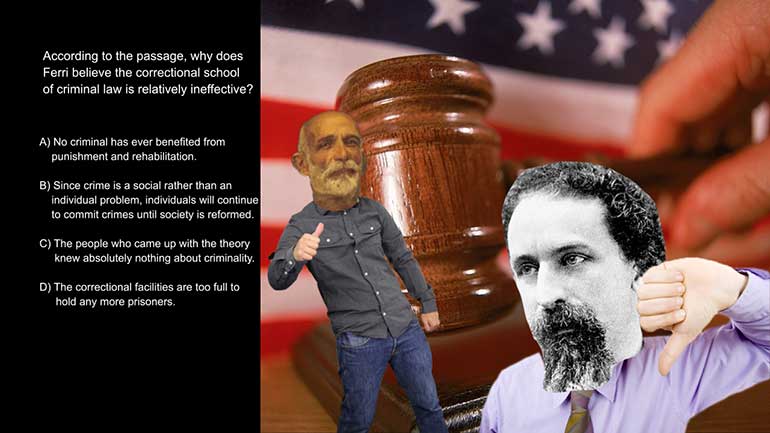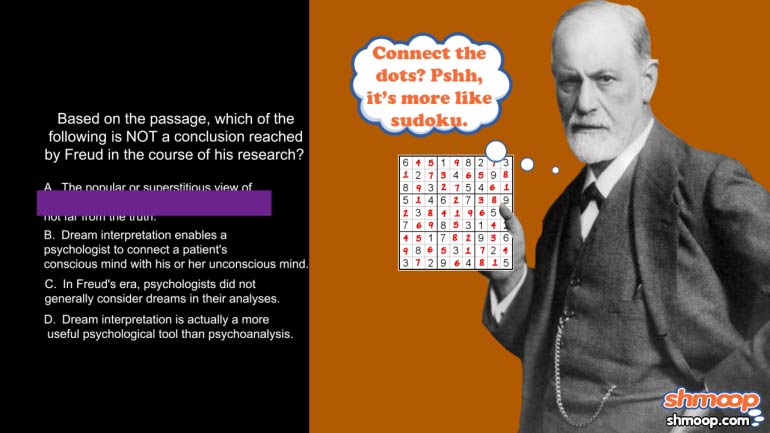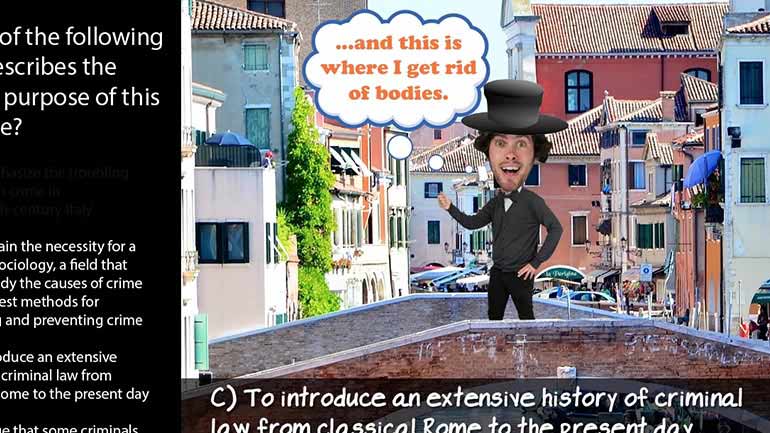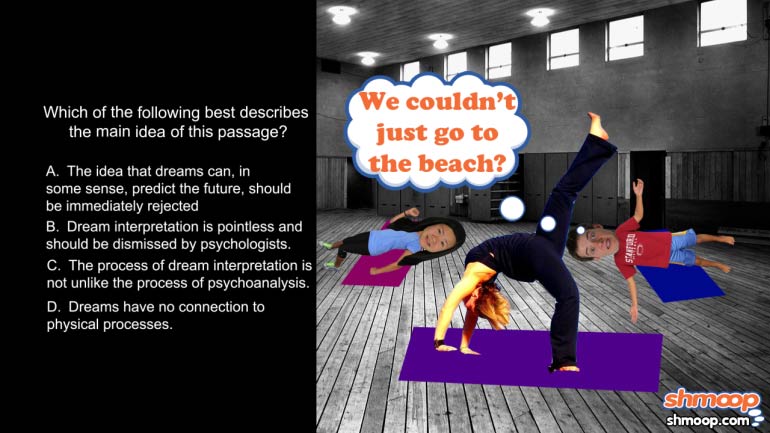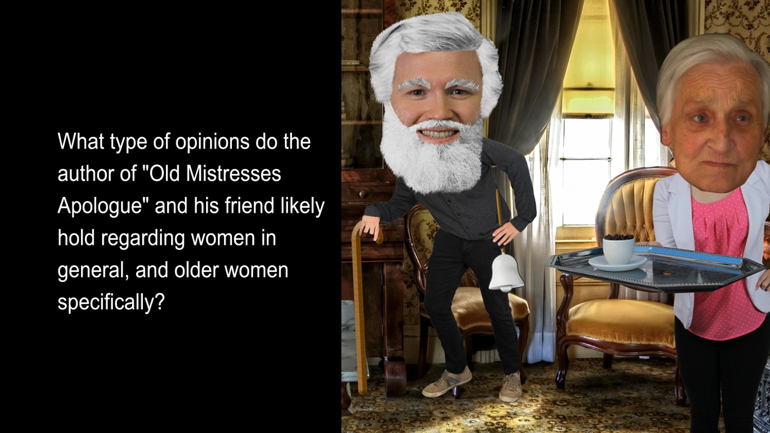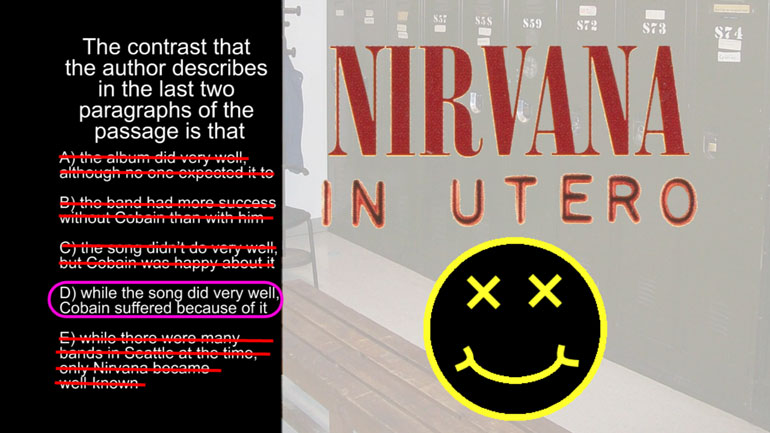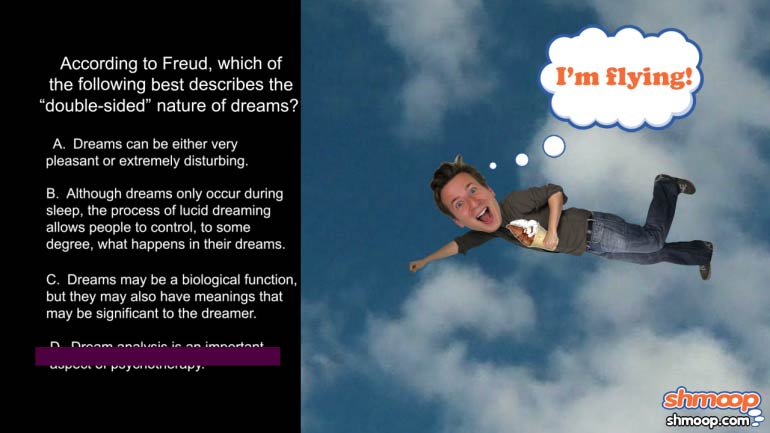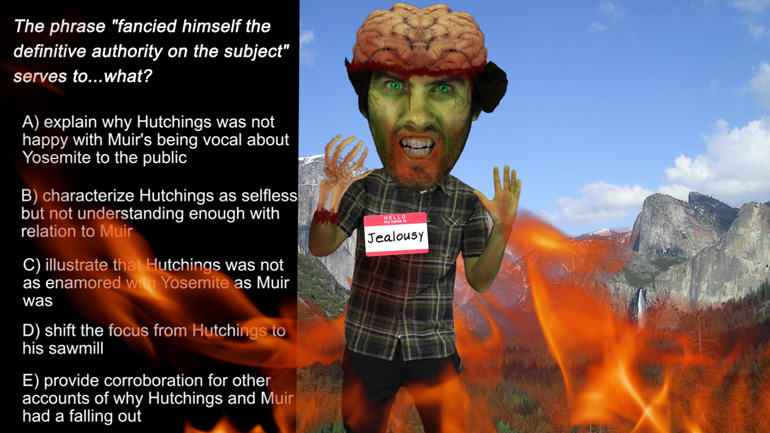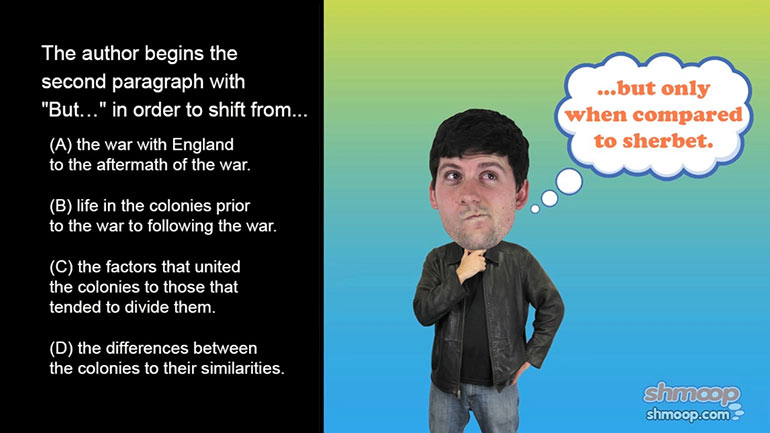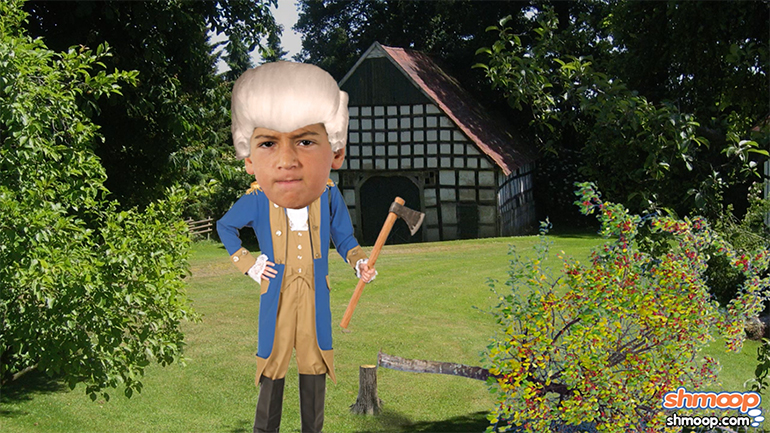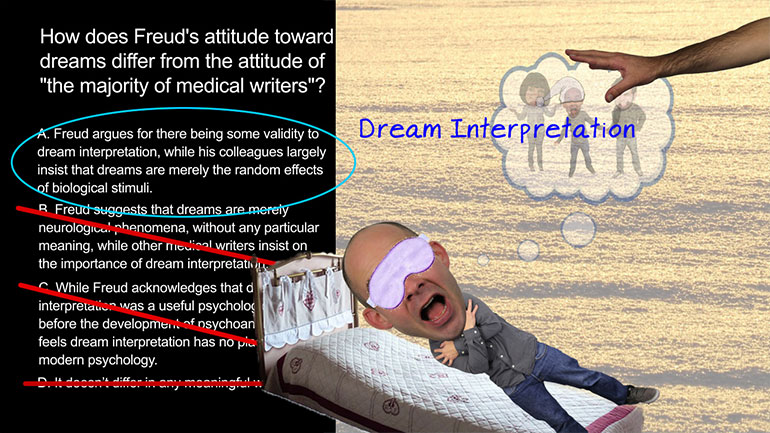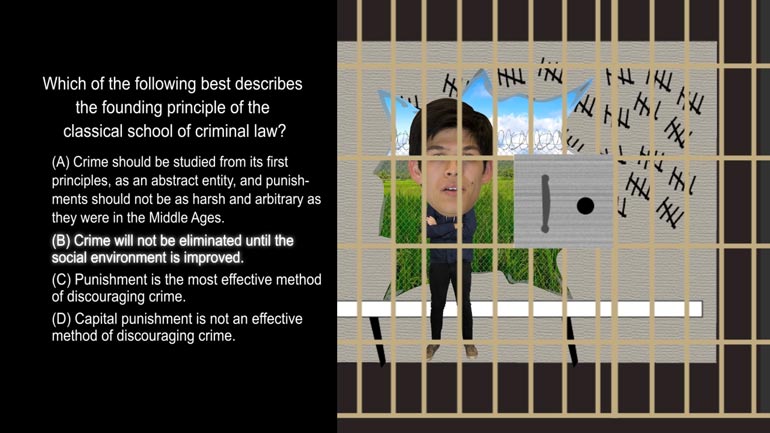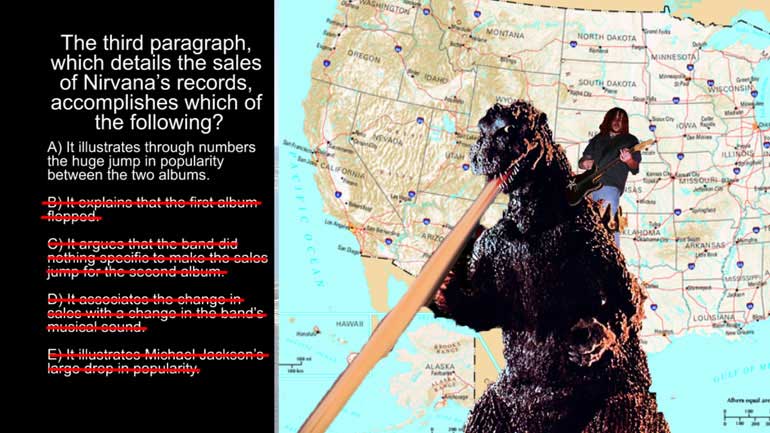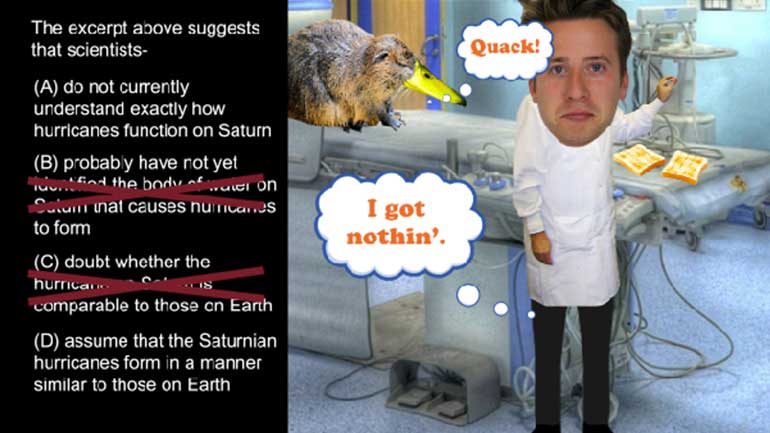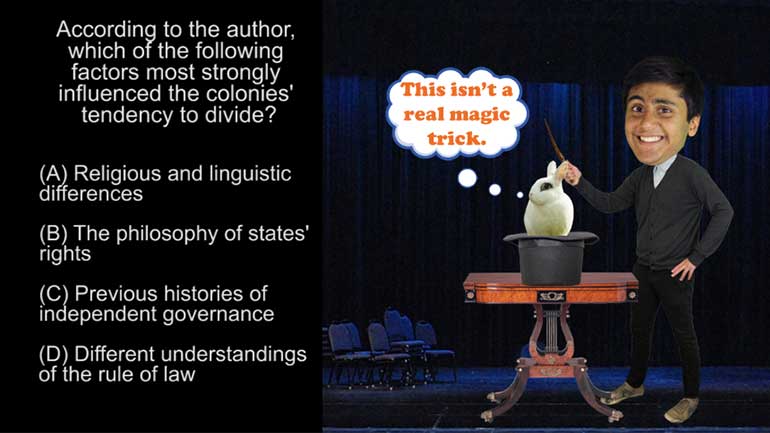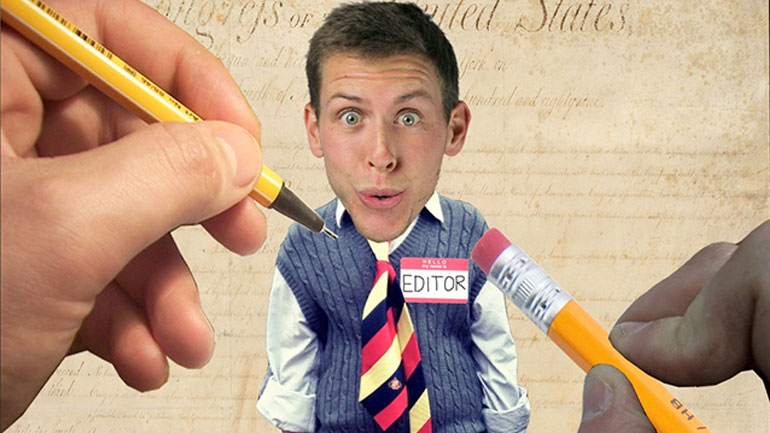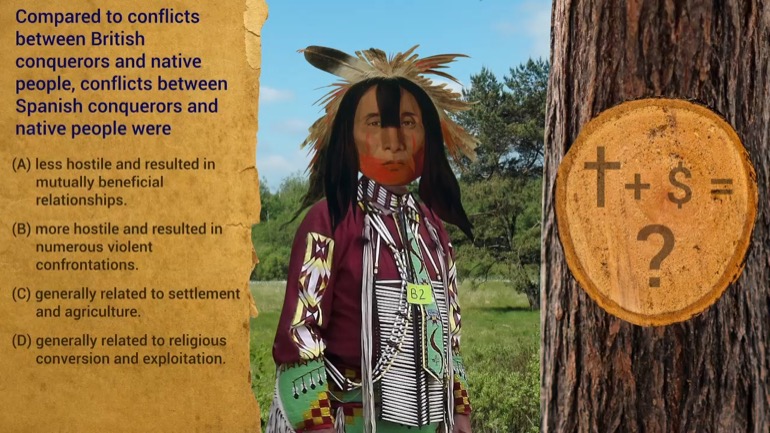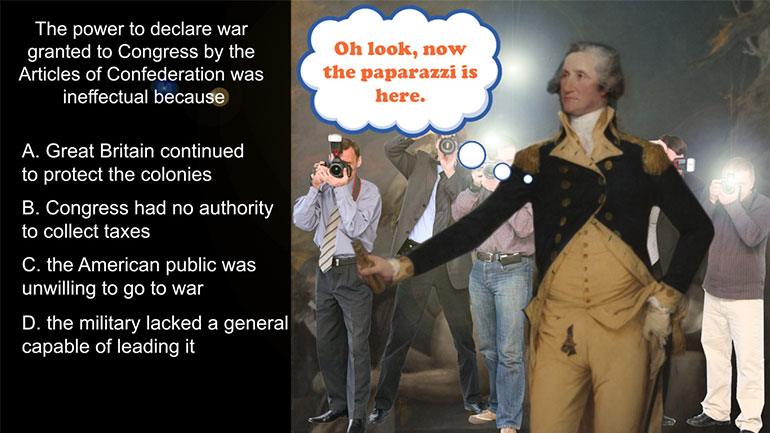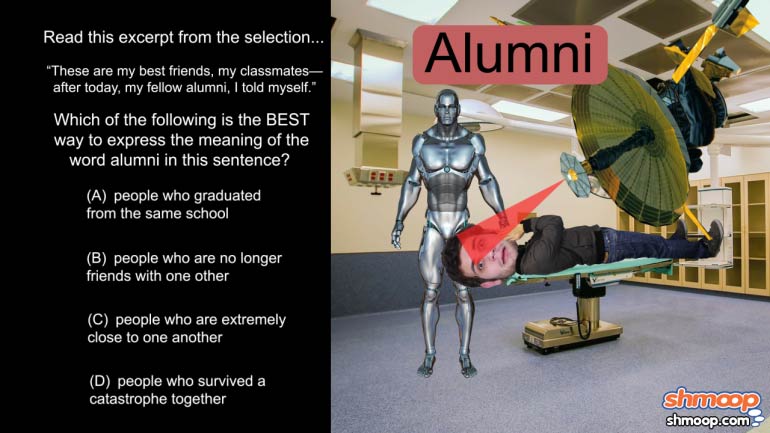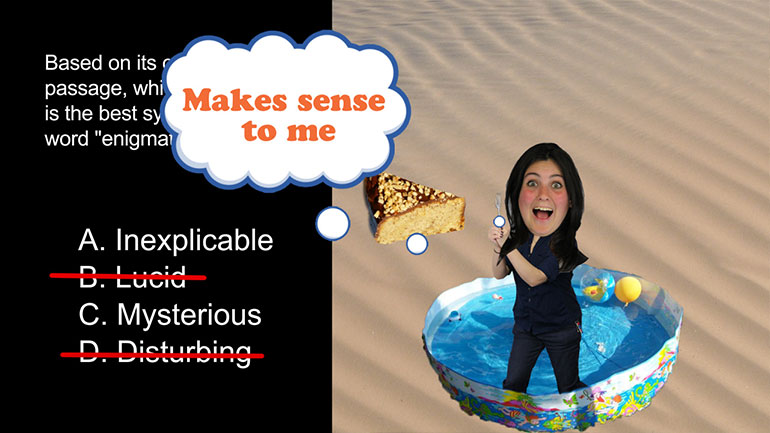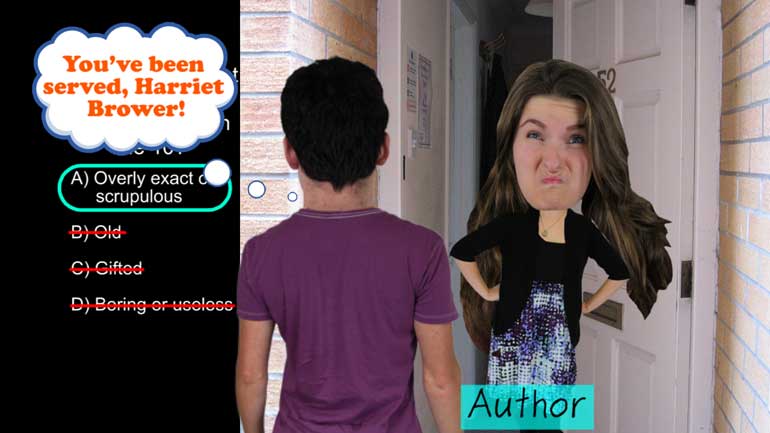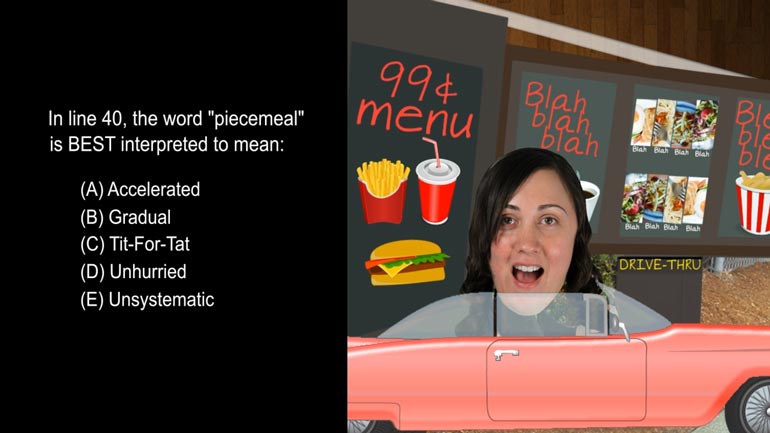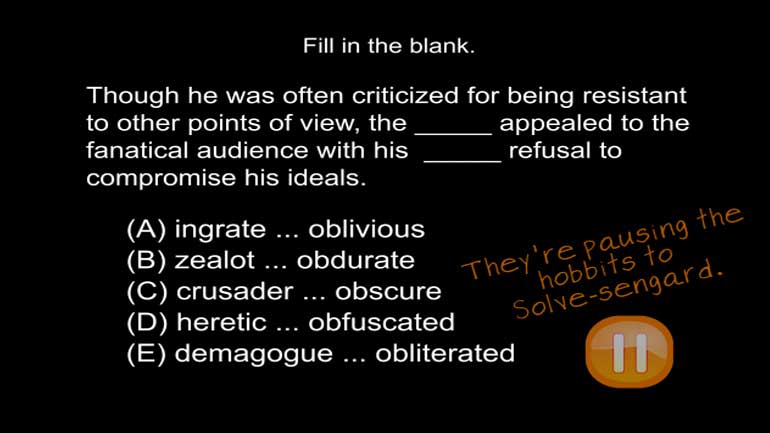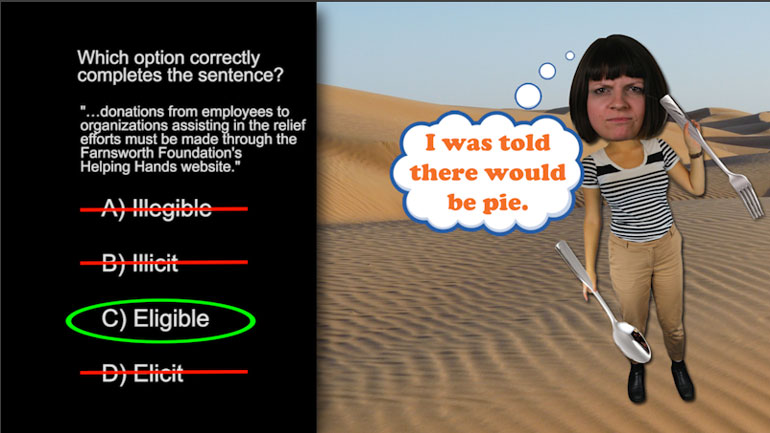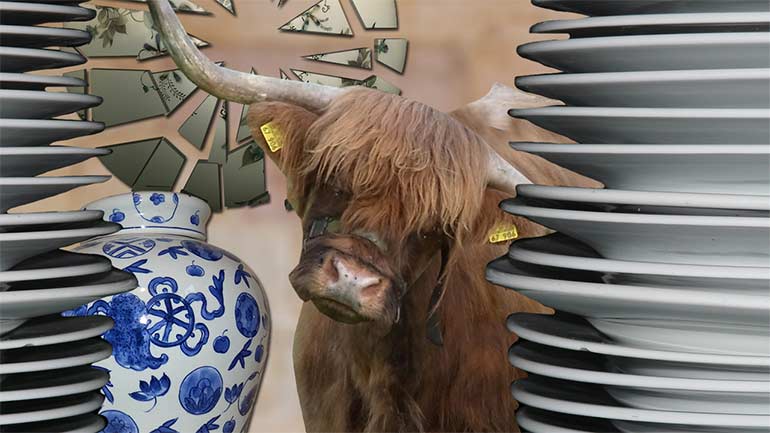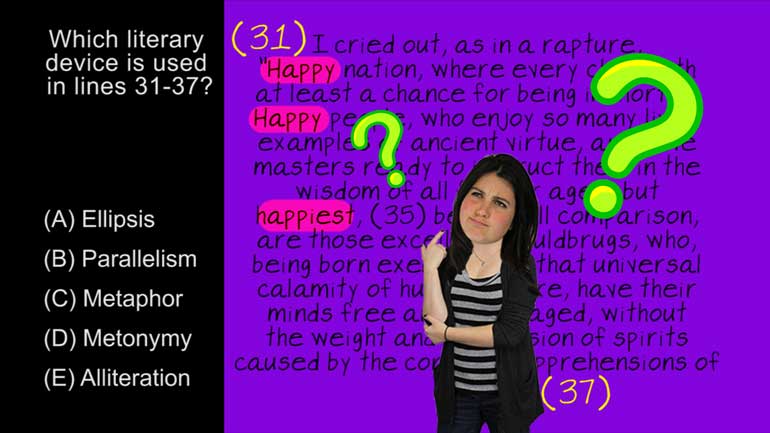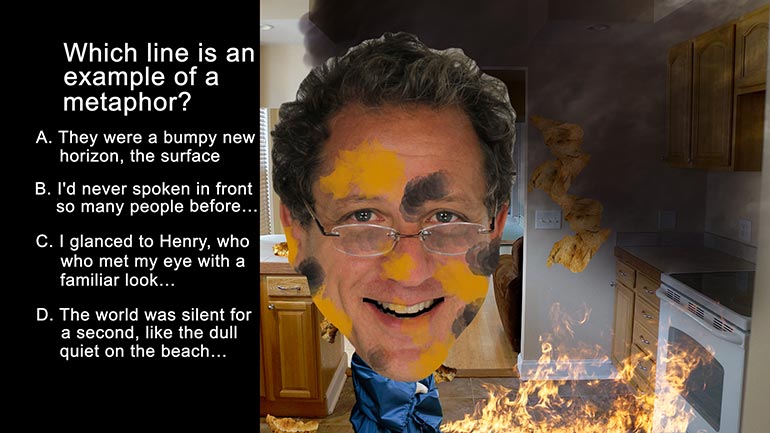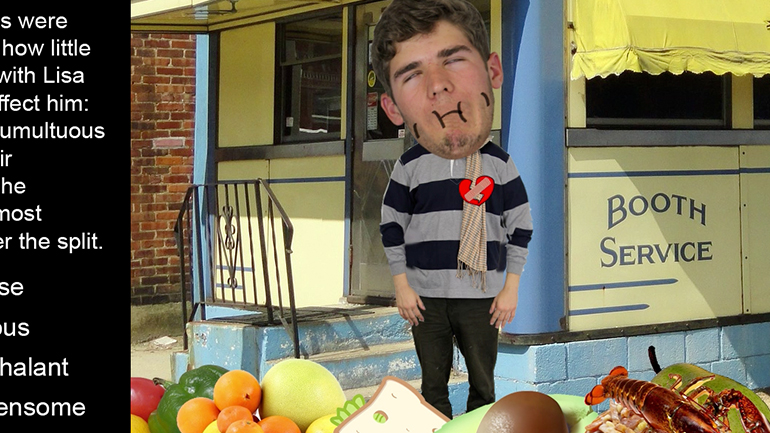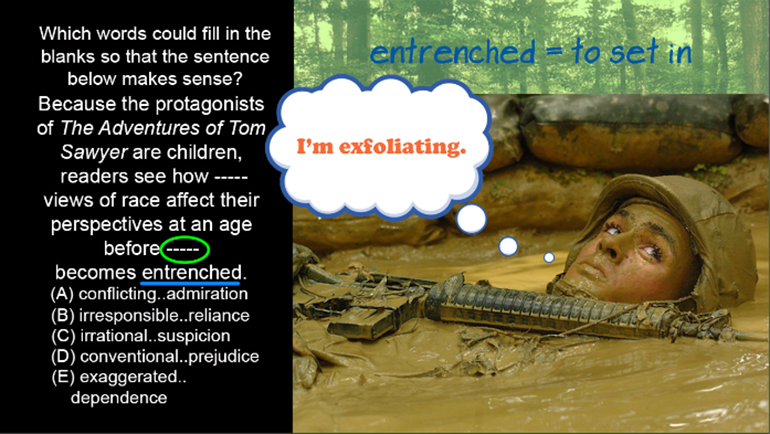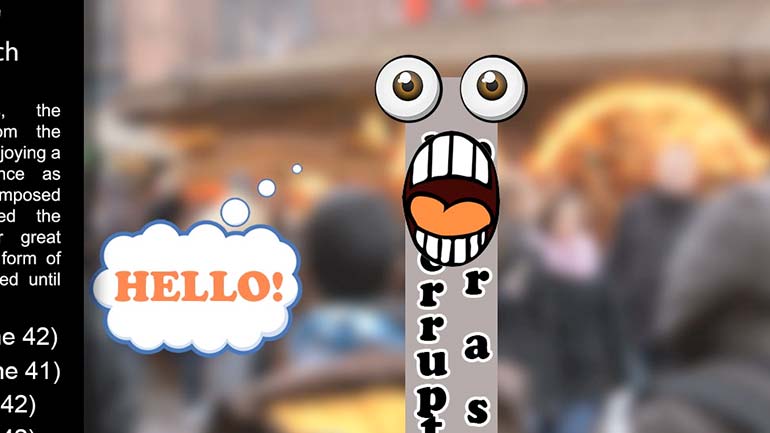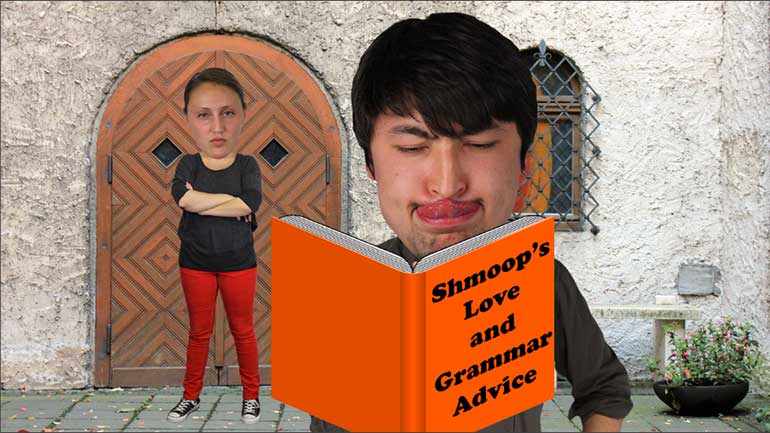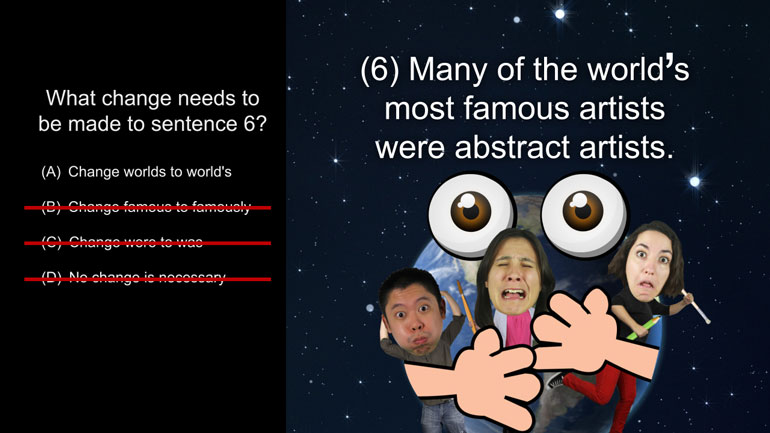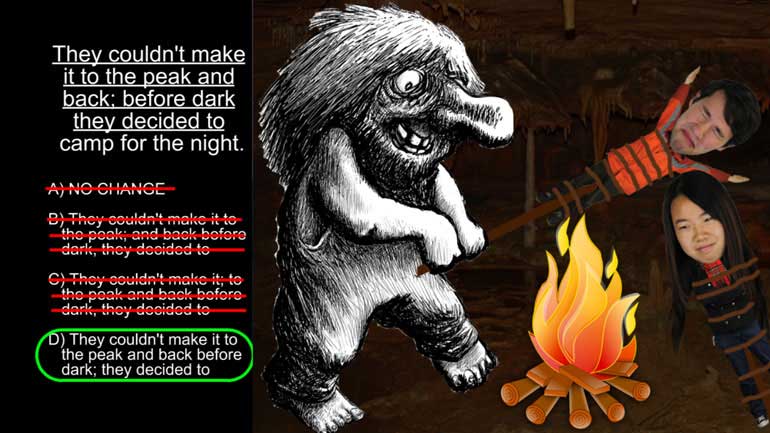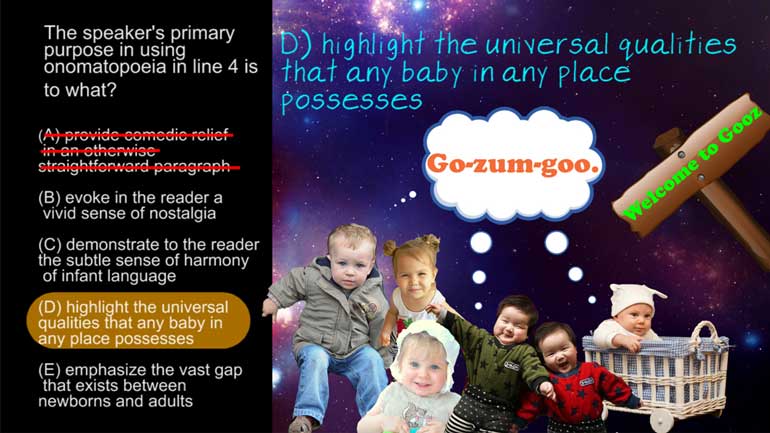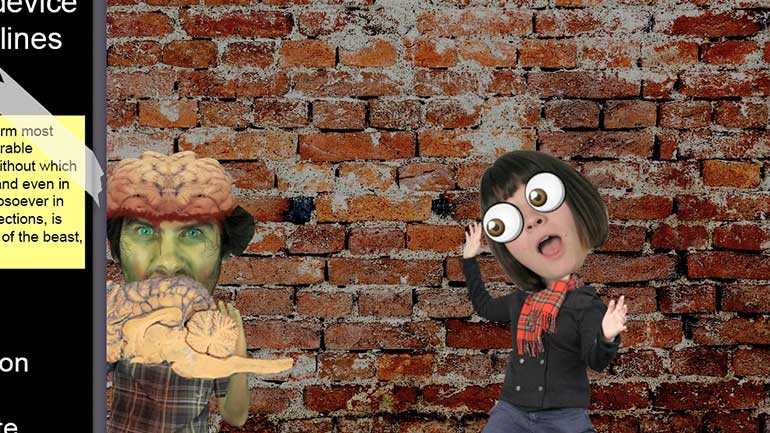ShmoopTube
Where Monty Python meets your 10th grade teacher.
Search Thousands of Shmoop Videos
English II Videos 95 videos
He or she that answereth this question shall...answereth it. And hopefully feel kind of accomplished. Hit play and figure out the primary rhetorica...
ACT Reading Prose Fiction Drill 1, Problem 4. How does the narrator feel about the prediction made at his birth that he would have the ability...
AP® English Language and Composition: Comprehension Drill 1, Problem 1. The speaker would agree with all of the following statements except what?
AP English Literature and Composition 1.8 Passage Drill 5 241 Views
Share It!
Description:
AP English Literature and Composition 1.8 Passage Drill 5. Line 9 is best understood as all of the following except what?
- Product Type / AP English Literature
- Reading / Audience and Purpose
- English / Audience and Purpose
- Reading Literature / Analyze how author’s choices in structure create mystery, suspense, or surprise
- Reading Literature / Analyze how author’s choices in structure create mystery, suspense, or surprise
- Imagery and Figurative Language / Identifying uses of imagery
- Literary Comprehension / Identifying details about plot, setting, or characterization
Transcript
- 00:03
Here’s your shmoop du jour, brought to you by Fate. There’s no escaping it.
- 00:07
Unless you have MacGyver and Chuck Norris on speed dial.
- 00:18
Line 9 is BEST understood as all of the following EXCEPT… what?
- 00:23
And here are the potential answers…
- 00:29
Had enough of Line 9? We didn’t think so…
Full Transcript
- 00:33
This question wants us to interpret the line and determine which of the answer choices
- 00:36
is INcorrect.
- 00:38
Note the “EXCEPT” in the question. They even “all caps”ed it for us.
- 00:42
Okay, first let’s take one last look at Line 9:
- 00:45
Thou'art slave to fate, chance, kings, and desperate men
- 00:48
Yikes. Doesn’t seem like we could squeeze four pieces of factual information out of
- 00:52
such a short line…
- 00:53
…but the question tells us that there’s only one rotten egg in the bunch…
- 00:57
Let’s… start sniffin’…
- 00:59
We’ll start with A – Death is often subject to the whims of man.
- 01:02
Well… kings are men, last we checked. And “desperate men” are tacked onto the end there.
- 01:08
So yeah – Death is a slave to kings and desperate men, who often make the decision
- 01:12
to take lives.
- 01:13
It’s good to be the king. B – Death is but a consequence of luck or war.
- 01:18
It’s hinted at a little more indirectly… but sure. The “kings and men” we mentioned
- 01:22
aren’t always just walking up to randoms and knifing them in alleyways.
- 01:26
War is where kings and men do a lot of their dirty work…
- 01:28
…and “fate” takes care of the “luck” part.
- 01:30
C – Death has no mastery of someone who willingly takes his life.
- 01:34
Nothing directly stated about suicide in this line either… but it goes without saying
- 01:38
that if a “desperate man” kills himself, Death can’t really do anything about it.
- 01:42
So C is out. D – Death is avoided by fate.
- 01:45
Ah – here’s our black sheep. Fate determines death, it doesn’t avoid it.
- 01:50
Just to be sure… E – Death is unpredictable.
- 01:52
Yup. The author is implying that death can occur randomly… so there’s certainly some
- 01:56
unpredictability in the mix. Answer: D
- 01:58
As in, “Dead giveaway.”
Related Videos
AP English Literature and Composition 1.2 Passage Drill 4. As which of the following is the object being personified?
AP English Literature and Composition 1.4 Passage Drill 3. How is Burne's view of pacifism best characterized in lines 57 through 67?
AP English Literature and Composition 1.6 Passage Drill 5. Death is primarily characterized as what?
AP English Literature and Composition 1.7 Passage Drill 5. Which line indicates the turn or shift in this poem?
AP English Literature and Composition 1.9 Passage Drill 4. Lines 32-34 are best understood to mean what?

